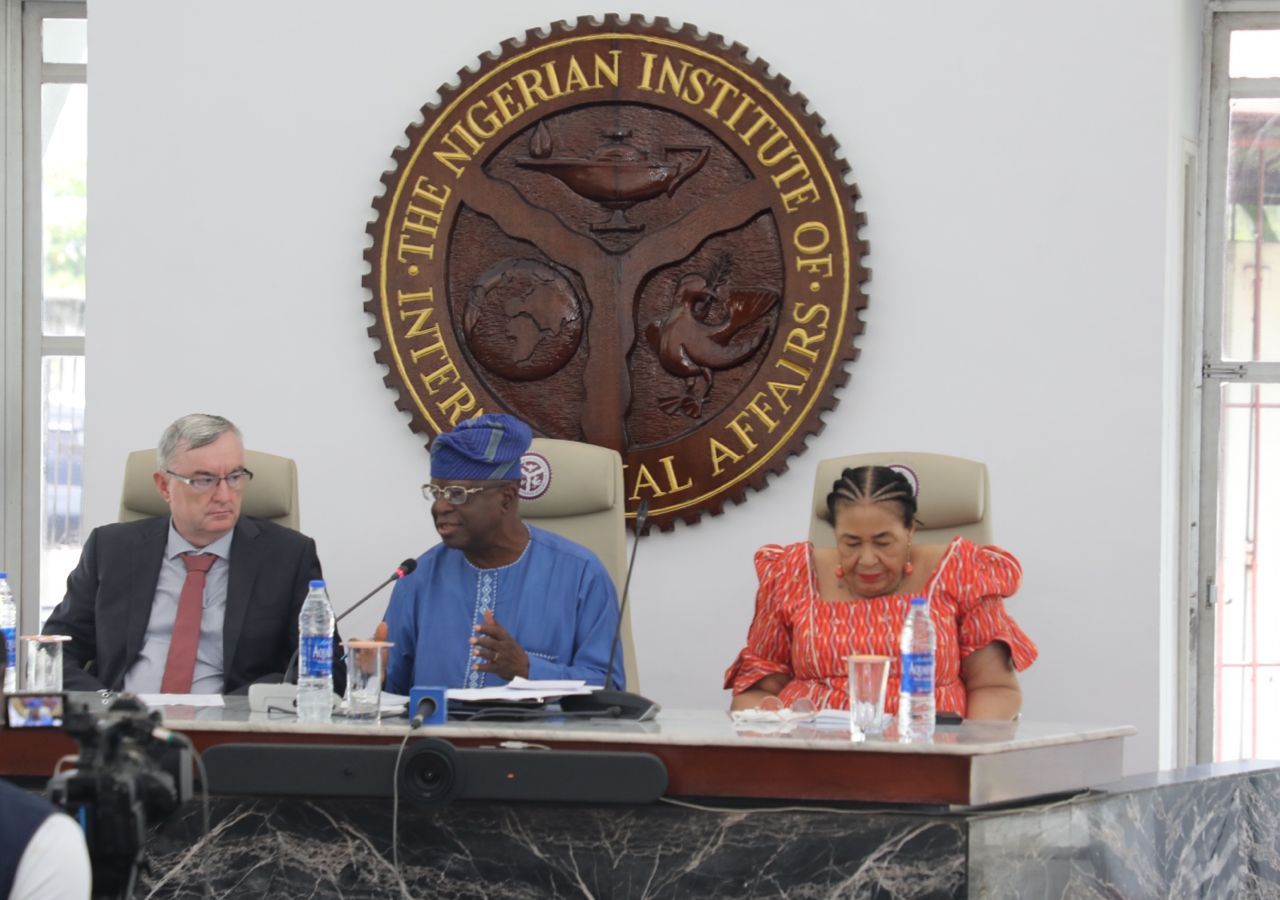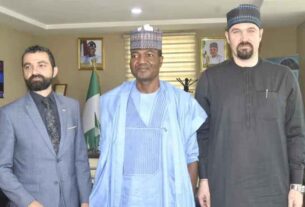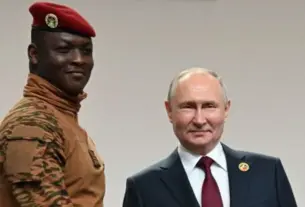Admin
NIIA, Czech Republic Embassy chart path for Africa
Africa’s role in international relations is a topic of increasing importance and academic interest, and must adapt to changing global politics, and diversification to remain relevant.
These were the recommendations made at a panel discussion at the weekend organised by the Embassy of the Czech Republic in Nigeria and the Nigerian Institute of International Affairs (NIIA) Lagos.
The dialogue’s theme was: “Africa in the International Arena and the Search for Relevance”.
In his opening remarks, the Director General of NIIA, Osaghae Eghosa, said scholars and practitioners of international politics and diplomacy have testified to the relevance of Africa in the future of the global system, in terms of the natural resources and innovations from Africa.
Mr Egbosa said of the 195 countries in the world, Africa has 54, making the continent a significant player on the global stage.
“Despite the struggles to be independent, Africa has asserted its right to positive autonomy and self-determination,” he said.
The panel session which was moderated by Femi Otubanjo, Research Professor at the NIIA, had David Aworawo, the Head of the Department of History and Strategic Studies, University of Lagos; Adesuwa Erediauwa, a Senior Research Fellow at NIIA; Efem Ubi, Associate Professor at NIIA; and Jan Zahorik, an Associate Professor of Modern History, at the University of West Bohemia, Czech Republic.
The NIIA DG noted that the Czech Republic has always been an important player in the global space, noting that the country’s perspectives will be valuable in discussions about Africa’s role in the international system.
The Ambassador of the Czech Republic to Nigeria, Zdenek Krejci, in his remarks commended the NIIA for bringing academics and industry leaders together to discuss Africa’s international affairs.
Mr Krejci said “Africa is no longer just a continent of conflicts and humanitarian disaster, it is a dynamic region with a faster-growing population in the world and represents opportunities for economic, cultural and other cooperations.
“This is the right tool in Nigeria. At the same time, however, it is important to monitor the direction in which Nigeria is developing in the political and social spheres and we are very grateful for the insights from this panel.”
On improving Nigeria-Czech Republic relations, he noted that Nigeria should adopt solutions proposed by distinguished professors on the panel.
He also emphasised the need to invest in education to develop the capacity of people which he noted may reduce emigration due to limited opportunities in their home country.
Mr Otubanjo said Nigeria should emulate the Czech Republic’s model of political resolution.
“We appreciate this partnership with the Czech Republic, one of the most stable and prosperous countries in the world,” he said.”
“Czech Republic is a model in terms of democracy, stability, meritocracy, and focus on economic management. We are very privileged to partner with this great Republic.”
Speaking on Africa’s identity, Mr Otunbanjo said Africa is a complex and diverse continent with many commonalities in history and governance, with factors including the slave trade, colonisation, exploitation and now neo-colonialism and there are still such commonalities in contemporary Africa.
He said countries of Sub-Saharan Africa share a common experience of instability, bad governance, conflicts and crises, civil wars, underdevelopment, poverty, and so on, while North Africa is more focused on its Arab identity and politics.
Mr Otubanjo noted that Western Central Africa is guilty of endemic conflicts and civil wars, political instability, and gross underdevelopment.
He, however, noted that in international affairs, the heterogeneity of the African continent should be recognised.
Mr Aworawo emphasised the need for Africa to address its political and economic challenges to be relevant on the global stage.
The Professor of International Relations and Strategic Studies, also spoke about the global economic prognosis, citing the ageing population, political instability, and lack of solidarity as factors.
He also suggested that investment in human capacity development is crucial and that the government will need to invest in education to compete in the contemporary world, citing Botswana as a country that is leading due to investment in education, and the resources they have.
Mrs Erediauwa of the NIIA noted that Africa’s struggle for resources continues, with potential rules and population growth being a concern, adding that regardless of the large population, Africa has the economic potential that benefit the world.
She said currently Africa accounts for 16 per cent of the world population, and that the World Bank has projected that by 2050, 25 per cent of the global population will be Africans in Africa, with huge demographic dividends.
Mrs Eradiauwa further suggested that connectivity, improvement in transportation networks, and digital connectivity, will lay the foundation for driving inclusive growth together as the continents
She also noted that Africa has the potential for new energy, clean energy, and investment opportunities due to abundant natural resources, adding that opportunities abound if Africa collaborates with the BRICS.
On his part, Mr Ubi suggested that issues of power dynamics and diversity within Africa and its international representation should be adequately addressed.
Mr. Zahorik who joined the panel virtually noted that industrialisation is key to Africa’s future growth and development, emphasizing the importance of institutional reforms in Africa to address socio-economic inequalities and promote democracy. Premium Times.





